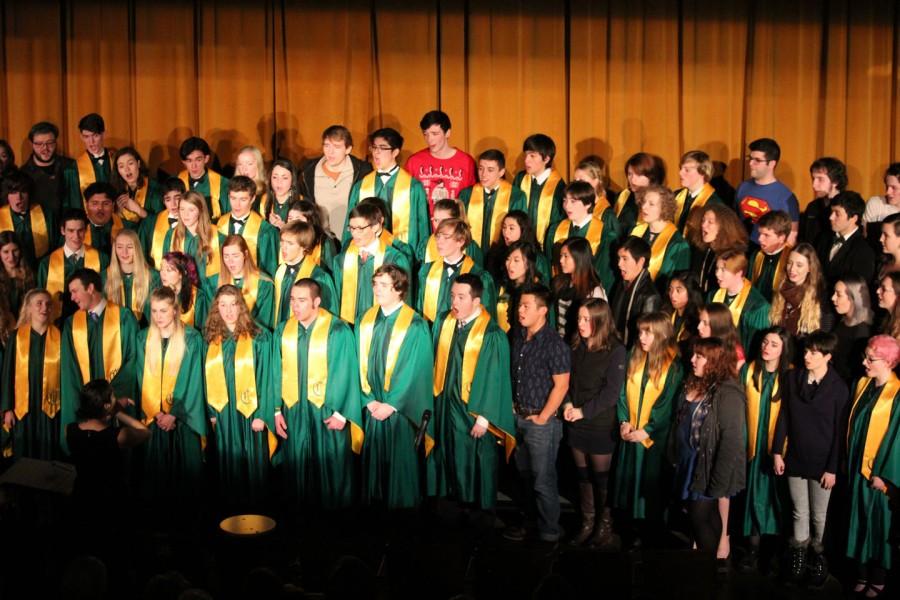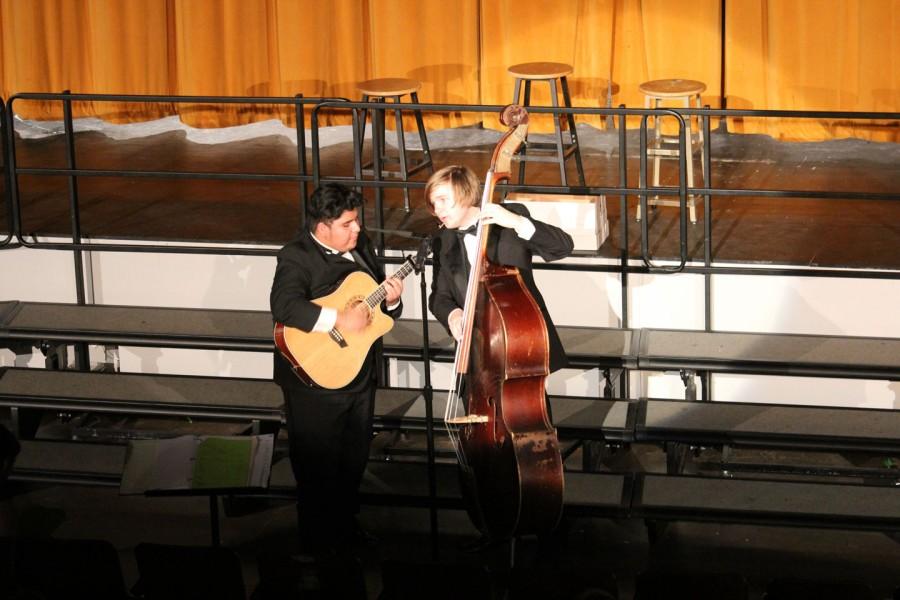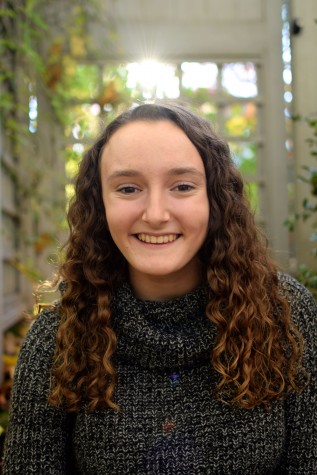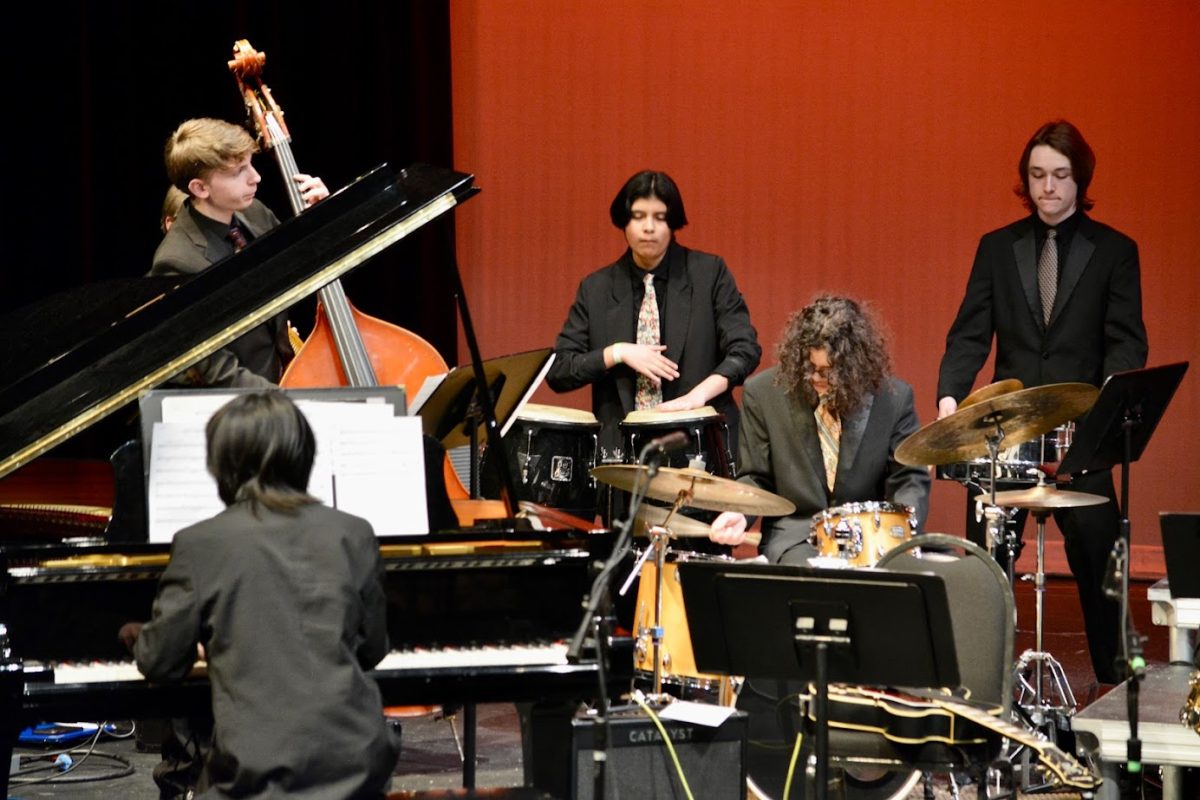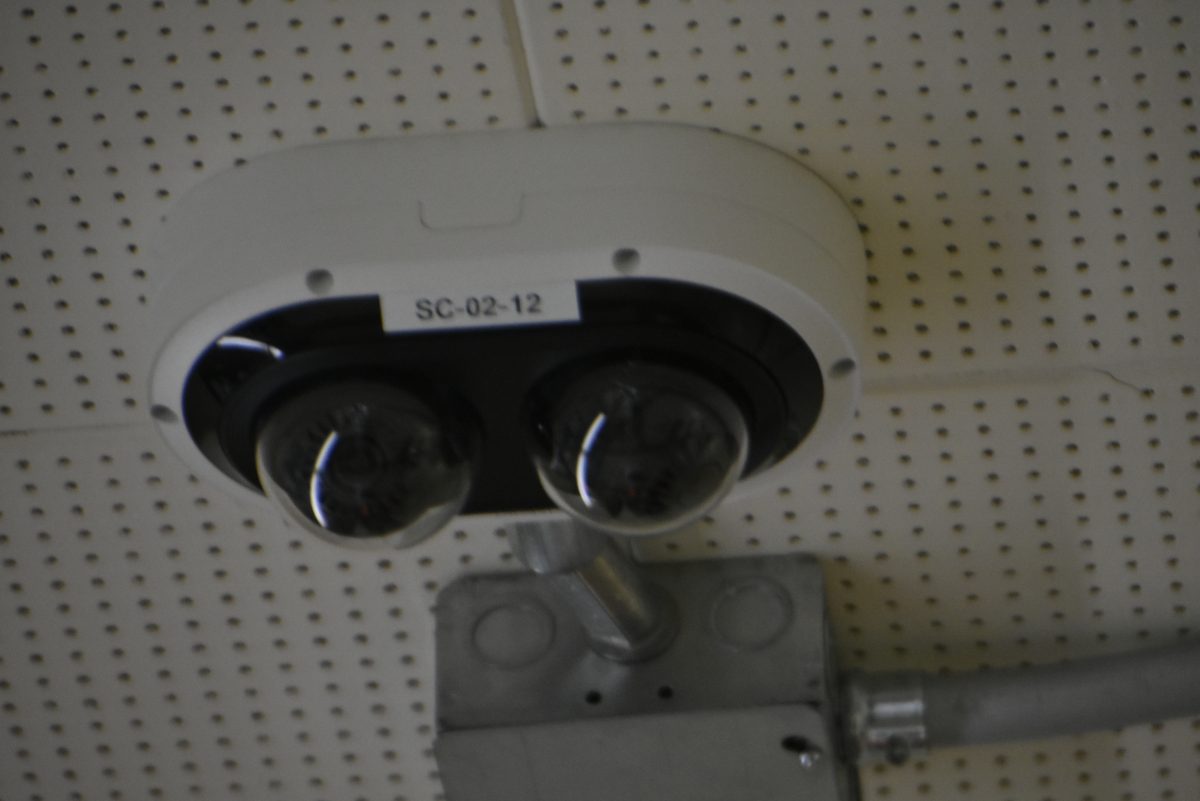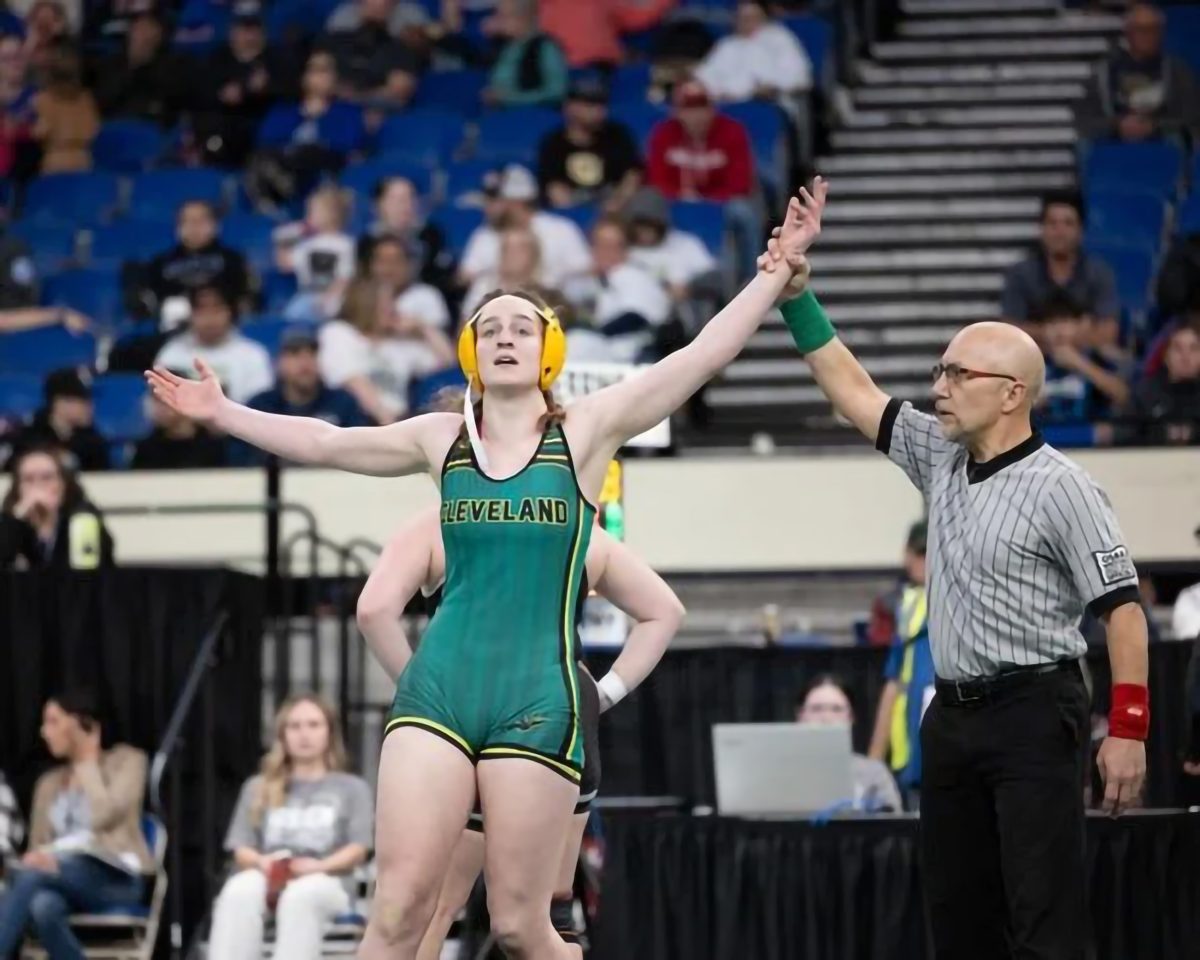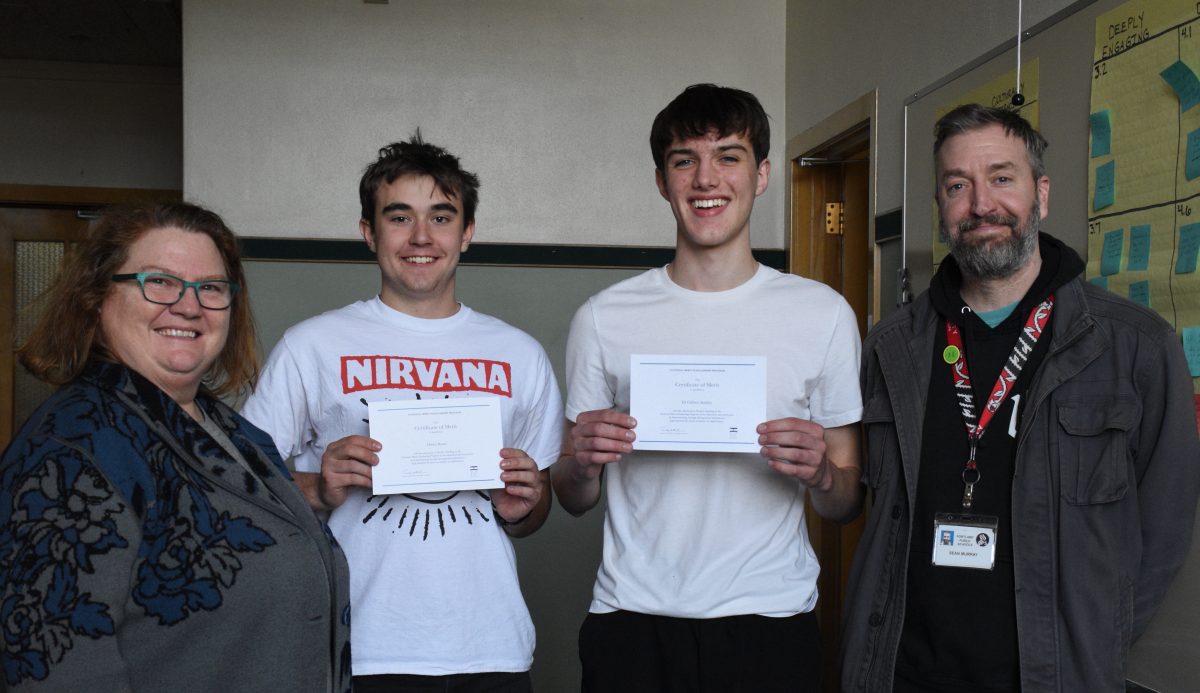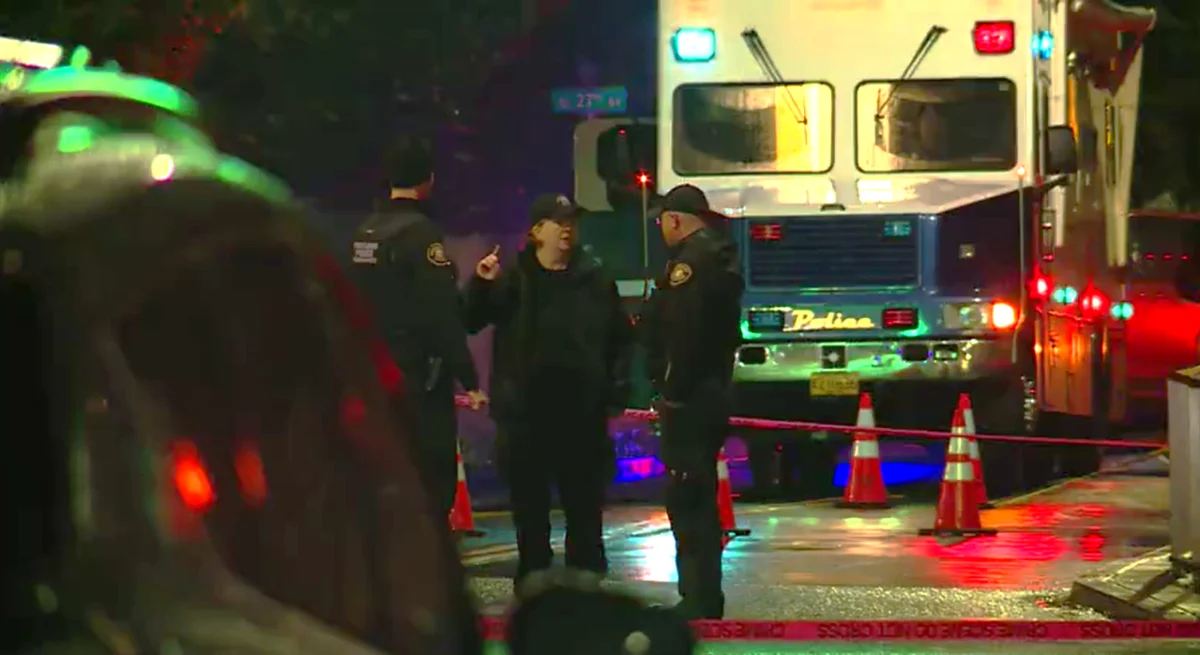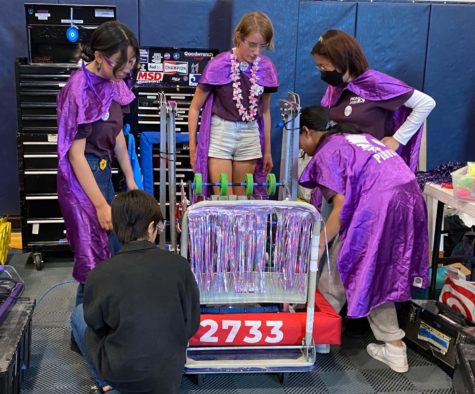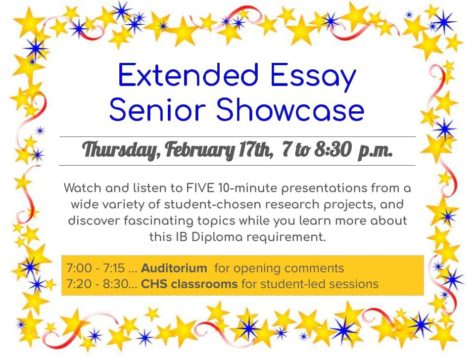No ‘Hallelujah’ with teachers marks end of long tradition
Clarion photo Emily Diamond
A choir sings Hallelujah with student alumni
January 19, 2016
This year marks the end of a tradition that has sustained for over 50 years. Since the early ‘60s, teachers and staff members have sung “Handel’s Messiah,” popularly referred to as “Hallelujah” at the end of the winter choir concert. After requests from teachers, administration decided to change the song to a more secular piece: “Winter Wonderland.”
“Certain staff members feel uncomfortable with the religious content of it,” Diana Rowey, choir teacher, said. “They want to be supportive of the students, but they don’t all affiliate with the religious content and don’t want to send the wrong message.”
“In Hallelujah, there are not even just allusions to religion; there is a lot of overt religion,” said Steve Nims, history teacher. “Winter Wonderland is not as bombastic and it’s an easier song to sing.”
Although Rowey appreciated the tradition, she respects all students and teachers and wants to guarantee no one is offended by the choral pieces. “In the past, there was a group of teachers that would leave during that part, which is very unfortunate…I’m glad we went with a more secular song,” said Rowey.
Principal Tamara O’Neill is in full support of changing Hallelujah to a more inclusive song. “More involvement is always going to be where I go. It’s a tenant of education and certainly a cultural response of education,” O’Neill said. “It’s crucial all of our students see themselves within the activities and the climate of the school.”
O’Neill said she always tries to look at the “ands” instead of the “ors,” emphasizing that she wants to incorporate more cultures and include more people in educational activities.
Choir is still allowed to sing Hallelujah as a chorus, but for the last piece with teachers, administration decided to change it to a more secular song.
“Although the whole program may contain a variety of [cultures], there is only one song that the staff members are included on,” O’Neill said. “Since there is only one instance of it, we want to make sure we have a selection that we all feel like will represent a larger population.”
O’Neill wants to ensure the school follows the legal guidelines of separation of church and state. As quoted by the US Department of Education, “School concerts that present a variety of selections may include religious music.”
A couple diverse pieces from this year’s concert included Betelechamu, a Nigerian piece, and Softan, a Greek song about the adventures of life.
In addition to changing Hallelujah to a less overtly religious piece, O’Neill is in favor of adding more cultural songs to the concert.
“I want the opportunity for students to learn about the cultures that are different than their own. Part of the education is….being a global citizen and preparing students to go into a world that interacts with different races and nationalities,” she said.
“I think it is a part of a well-rounded education,” Nims said. “Learning about culture and religions can help students understand why groups of people act a certain way, and can give context to current events.”
Rowey wishes she was able to find a more eclectic group of religious songs to sing at the concert. She expressed difficulty in finding arrangements that include religions other than Christianity.
O’Neill suggests we explain more about the origins of the songs as well as the history and diverse cultures from which they originate so more people will understand the background of the music. “It’s for our own interest and education,” she said.
One issue is making sure all students in choir feel comfortable with the songs they are singing. “If a kid in choir said it’s against the religion to sing this song and there’s a grade tied to it, you’d have to work on that,” said Nims.
The US Department of Education guidelines state, “Students from certain religious traditions may ask to be excused from classroom discussions or activities related to particular holidays.”
Rowey allows kids to leave choir if they don’t want to sing religious pieces, but says most students “understand that we do all sorts of pieces, including religions.” She added, “I make it clear that we’re not worshipping. It’s just exposure, like in history.”
Although Nims is a firm believer in separation of church and state, he doesn’t think it’s worth avoiding religion as part of music education. “Learning about culture and religion can help students understand why groups of people act a certain way, and give context to current events,” said Nims.
Although there is controversy regarding how much religion should be sung in choirs, it seems most people at Cleveland are accepting of the change from Hallelujah chorus to Winter Wonderland as a final piece with teachers.
“Winter Wonderland was a beautiful arrangement and I loved that the band could accompany,” O’Neill said. “I still love the tradition…having the staff members join the choir sends a community-oriented message and really showcases the strength of the Cleveland community.”



